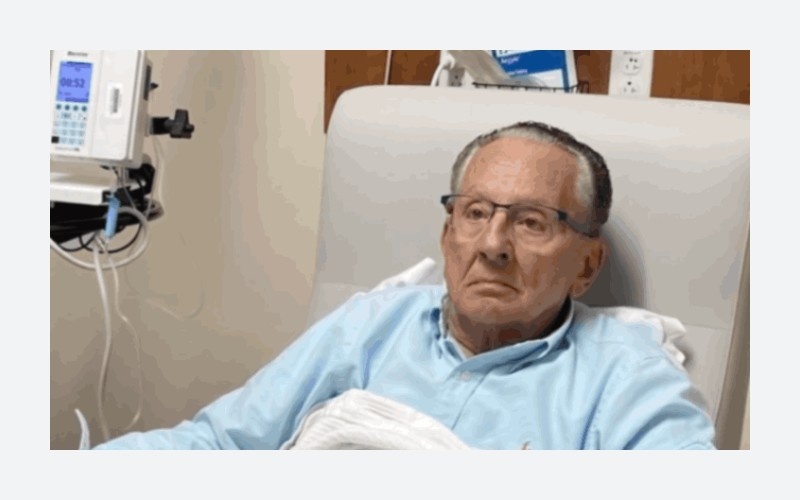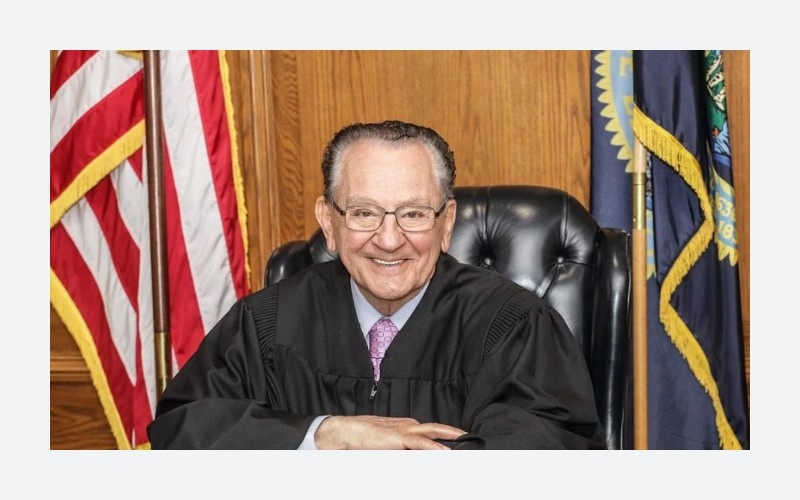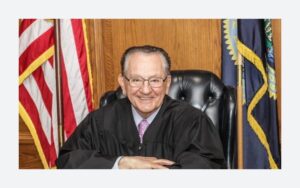Whenever one envisions the courtrooms, they tend to picture stern judges, brutal verdicts, and legal terminology that is too scary. But with his friendly demeanor, Judge Frank Caprio, affectionately known as America’s nicest judge, turned that around to millions worldwide. He has gone viral through his show Caught in Providence, and he is not just loved because of his decisions but because of how he treats people. He was not just a public official; he was a kind, humble soldier with the ideals of compassion, humility, and justice that could be seen in his life. Contained herein are topics on his life, the road to his fame, his memory of altruism, and why his legacy cannot be ignored to date.
Early Life and Humble Beginnings
Frank Caprio was born on November 24, 1936, in Providence, Rhode Island. Having spent her childhood in the Federal Hill neighborhood, a small and close-knit Italian-American community, Caprio was brought up in the context of family, hard work, and perseverance values. His father, Antonio, was a first-generation immigrant fruit peddler dedicated to supporting his family, and his mother, Filomena, had taught him in depth about the need for empathy and strength. Young Frank would help in paying his bills by shining shoes, delivering newspapers, washing dishes, and even working on a milk truck.
These modest roots conditioned the personality of someone who would go up to become one of the beloved judges in America. His childhood was not a bed of roses, but he learnt about the plight of working-class families and would never forget that when he entered his courtroom years later. He graduated from Providence College in 1958 with a degree in political science, also working full-time as a high school teacher of civics, with a special feature working at night at Suffolk University Law School. His service to the world was also in the Rhode Island Army National Guard, where he served between the years 1954 and 1962.
Entering Public Service
Caprio’s career in public service began in 1962 when he was elected to the Providence City Council, where he served until 1968. His educational and civic betterment motivations also brought him to serve as chairman of the Rhode Island Board of Governors for Higher Education, where he supervised some significant institutions, including the Community College of Rhode Island, the Rhode Island College, and the University of Rhode Island. Though he contested to be the state Attorney General in 1970 and lost, he never exhausted practicing what he loved: serving people.
Caprio was made the Chief Judge of the Providence Municipal Court in 1985. This role would eventually become the foundation of his legacy, as his courtroom transformed into a stage where ordinary people’s stories met extraordinary compassion.
The Rise of “Caught in Providence”
The broadcasting of the courtroom proceedings started as a local-access show that has evolved to be a worldwide phenomenon. Caught in Providence was recognized because of its unusual incarnation of justice. Instead of the courtroom drama and the tension that is so appealing to the audience in the traditional courtroom shows, Judge Caprio had the opportunity to bring laughter, sympathy, and understanding.
That show went viral in 2017 when his rulings made it across social media outlets. Millions were moved by the growing number of videos in which the aptly named kind judge Frank Caprio listened intently as arrested defendants pleaded their cases, made light-hearted jokes, and showed compassion rather than being subjected to the usual cold-blooded formality of the courtroom. The YouTube channel had by the year 2022 accrued nearly 500 million views, with certain clips drawing more than 40 million views.
What made the show so appealing was a very simple yet very deep idea that Judge Caprio demonstrated to the world, that compassion fits in the courtroom. He was an icon of fairness and decency, as people did not have a lot of confidence in institutions. The title Caught Providence judge shows compassion was remembered later as a hope and a mankind symbol.
A Judge with a Heart
Judge Caprio used to say, or he would comment, I do not pin a badge on the robe. Wearing a heart.” This philosophy was the mark of his judicial philosophy. He thought that underneath any traffic ticket or minor infraction, there was a real person with real problems. As opposed to punishing people, he would reason into their conditions.
In one instance, Caprio showed leniency to single parents who said that they were delayed in paying fines as they were looking after their children. He comforted rather than criticized people when they were crying. These courtroom judge stories of virality were not performances put up–they were an authentic display of humanity.
In his decisions, he believed in justice, which not only safeguarded society but also uplifted individuals. And a balance of accountability and empathy was what made Frank Caprio so special, and why the long tail keyword of Judge Frank Caprio’s legacy of kindness has continued to outrank him online.

Beyond the Bench: A Life of Philanthropy
Although it was through his rulings that Judge Caprio became a household name, the impact that he had went beyond this time in the court. He was a person of education and charity and founded an Antonio “Tup” Caprio Scholarship Fund at Suffolk University in memory of his deceased father. Students with not a lot of financial resources were assisted by this fund to undertake legal studies. He also endowed scholarships at Providence College and his former high school to provide a chance to youths in disadvantaged situations.
Caprio set up organizations such as the Rhode Island Food Bank, Boys Town of Italy, and many initiatives on the local scale. His devotion to the Rhode Island Statue of Liberty Foundation, an organization that contributed to the restoration of the Statue of Liberty and Ellis Island, was reflective of his immense admiration for the immigrant experience, an experience with which he was familiar. His actions as a philanthropist informed his opinion that uplifting others was the highest form of justice.
Recognition and Honors
A wide variety of institutions acknowledged Caprio in the following ways. In 1991, Suffolk University Law School gave him an honorary Doctor of Laws. In 2008, he was awarded an honorary law degree by Providence College, and in 2016, an honorary degree in public service by the University of Rhode Island. He received induction into the Rhode Island Heritage Hall of Fame in 2019, which reflects the devotion to community service and the betterment he has demonstrated throughout his life.
These awards served both to recognize his contributions to law as well as his contributions on the community level and as a humanitarian. He not only worked as a judge on a bench, but as a guide, fundraiser, nd spokesperson of the heart.
Final Years and Farewell
In December 2023, Judge Caprio disclosed he had been diagnosed with pancreatic cancer. Through a heart-warming message, he openly addressed his condition and for the prayers and kindness shown to him by his supporters. In 2024, he received radiation therapy, but he remained in ill health.
Judge Caprio died in 2025 at the age of 88 on August 20, 2025. His demise marked the end of one era, but the number of tributes went around the globe to show the imprint he left. On his death, Rhode Island Governor Dan McKee said King, as a man, represented the best of Rhode Island and that he was a Rhode Island treasure, and that he had ordered flags to fly at half-staff in his honor. His death was an intimate one to man, as they said to themselves, they had lost a dear family member. His court may have been small, but his television and social media message reached millions with his message of compassion.
The Enduring Legacy of Judge Frank Caprio
The story of the life of Judge Frank Caprio can be seen as more than a biographical work- it is the education of leadership, humanism, and kindness. He did demonstrate that justice does not necessarily have to be in a cold and impersonal manner. He transformed the reputation of being a judge through empathy, comedy, and humility. His courtroom anecdotes about the power of kindness showed that good could go a long way. He was active in his philanthropic work so that later generations would also take advantage of his generosity.
The results are long-tail keywords that people relate to him, such as: kind judge Frank Caprio, America’s nicest judge biography, Judge Frank Caprio’s legacy of kindness, and viral courtroom judge stories. They are thoughts of the man himself, which have stayed in the computer and the human memory. His example will always drive people, even those who are not lawyers, to a sense of purpose that lies with the power of compassion.
Conclusion
In the final thought, the life of Judge Frank Caprio can teach us that justice and mercy are not mutually exclusive. He tipped the scales between the heaviness of the law and the geniality of humanity and left behind a legacy of leadership desperately needed in this world. His court was small, his heart was great. Through that heart, Judge Frank Caprio left a legacy of kindness that will never erode.














